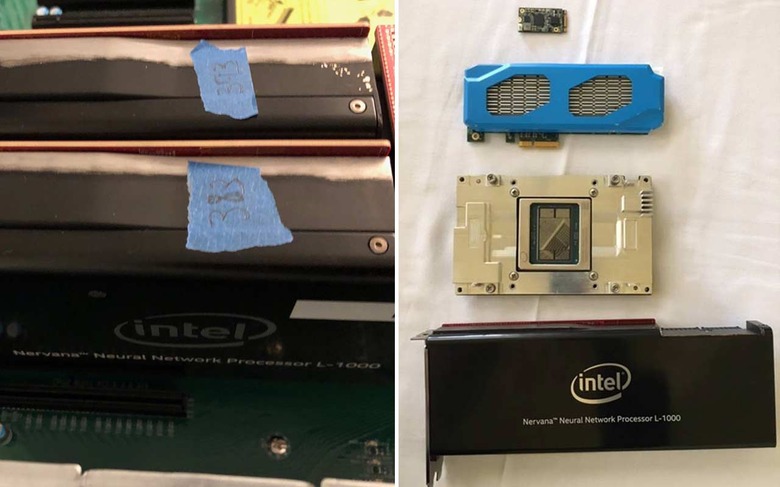Intel Nervana Spring Crest NNP Cards Photographed In Early State
Intel Nervana is the company's neural network processor (NNP) brand, relatively newly commercial-facing and already quite powerful. Thus far no Intel Nervana hardware's been widely available – but that ends with the Intel Nervana NNP-L1000, the company's first commercial NNP chip. Today we've got a couple photos of the most basic, but at least basically functional, bits of commercial Nervana in the L1000, codenamed Spring Crest.
Intel Nervana was scheduled to be launched in the second half of the year 2019. It would seem that they're well on their way, with this set of cards shown by none other than vice president and general manager of the Artificial Intelligence Products Group at Intel Corporation, Naveen Rao*.

The hardware we're seeing here delivers multiple times the training performance of its predecessor, the first-gen cards of Lake Crest. As Rao noted all the way back in May of 2018, this card supports bfloat16 so that the card may be part of the cool club of modern neural network hardware standards for numerical format.
These cards exist to deliver AI model testing to developers of all sorts. Above you'll see a slide from Intel AI Devcon 2018 showing one of the first big presentations of Nervana. That was the same presentation where Spring Crest in Intel Nervana NNP L-1000 was first revealed. There they said the card had a "purpose built design optimized across memory bandwidth, utilization, and power."
Above you'll see a presentation by Will Constable, head of distributed computing at Intel Nervana. This presentation is on Deep Learning, and how Nervana is ready to roll with helping data scientists blast into the future from tests to development.
The original Nervana Systems company was founded back in the year 2014. On August 9th of 2016, Nervana Systems was acquired by Intel, and is now a subsidiary of Intel. *Naveen Rao is also one of three co-founders of Nervana Systems along with CTO Amir Khosrowshahi, and VP Algorithms Arjun Bansal.
